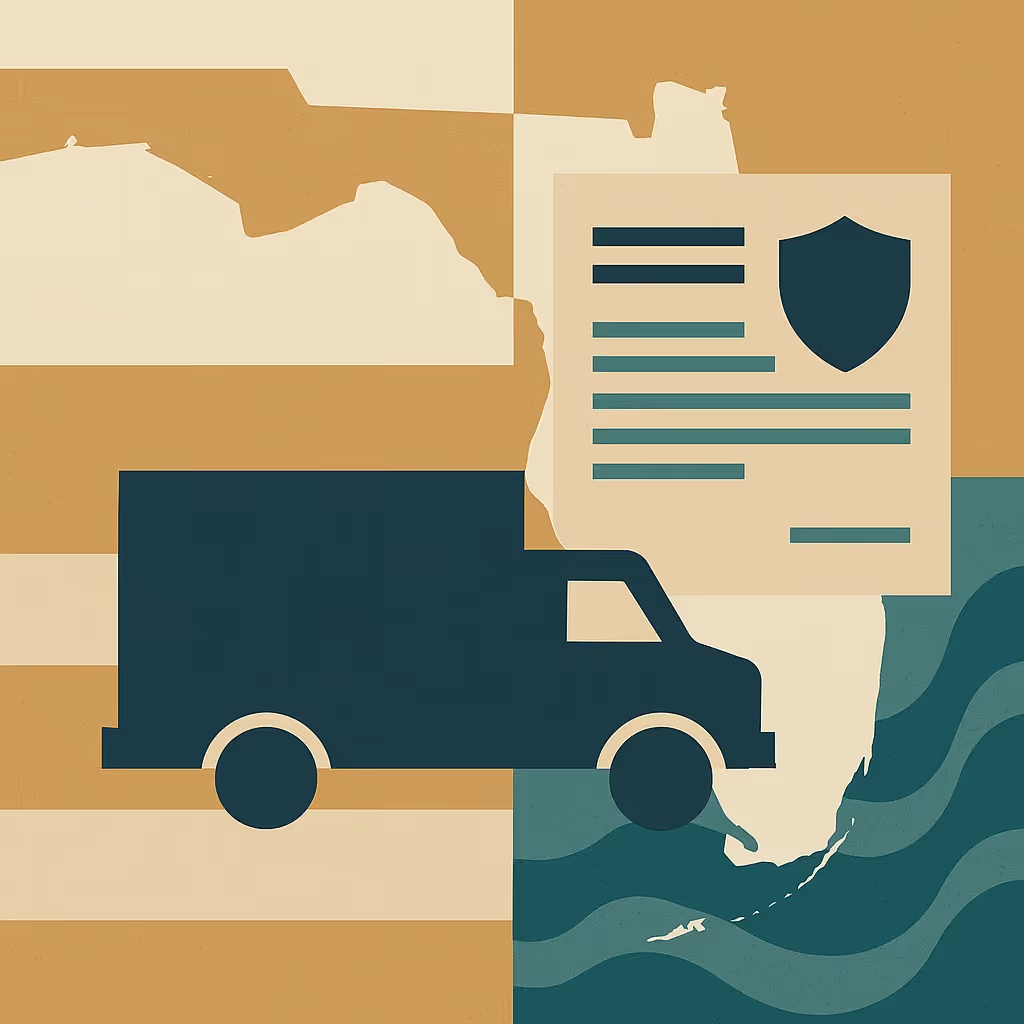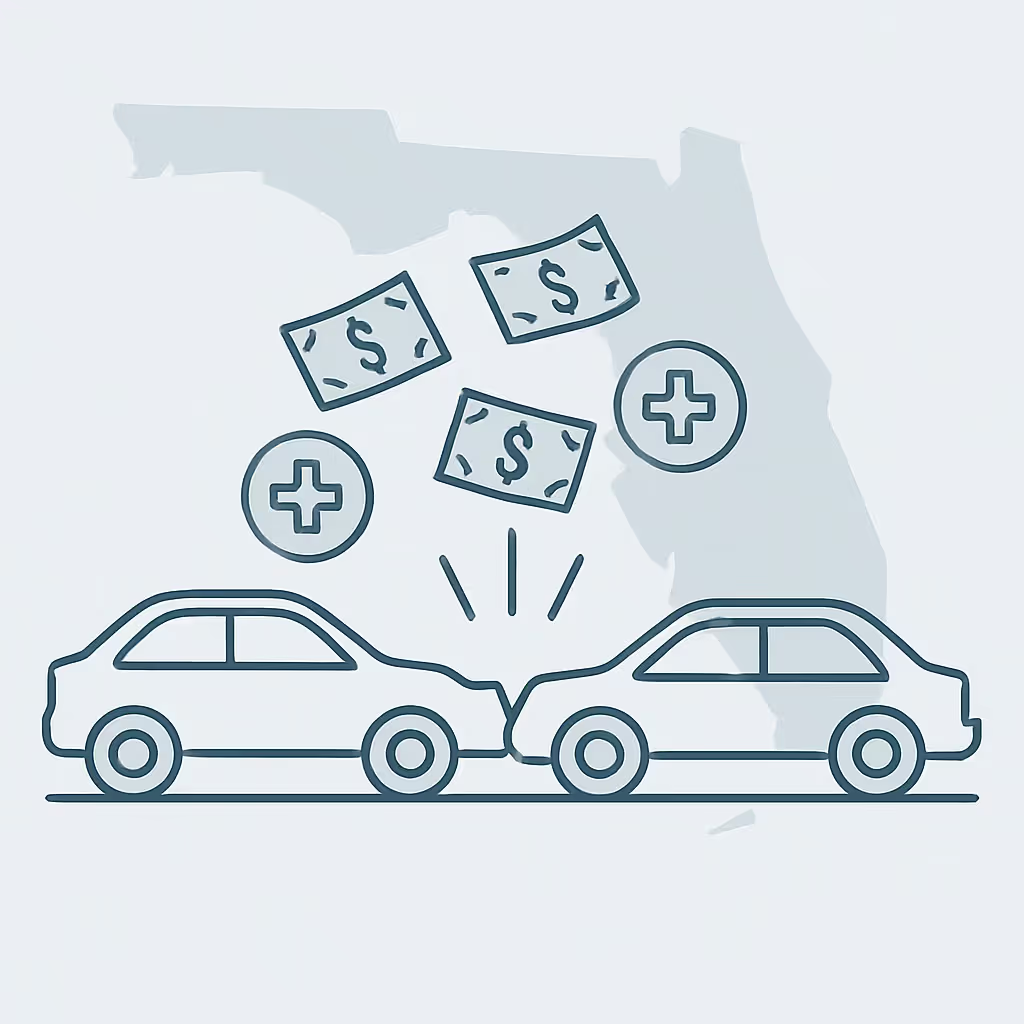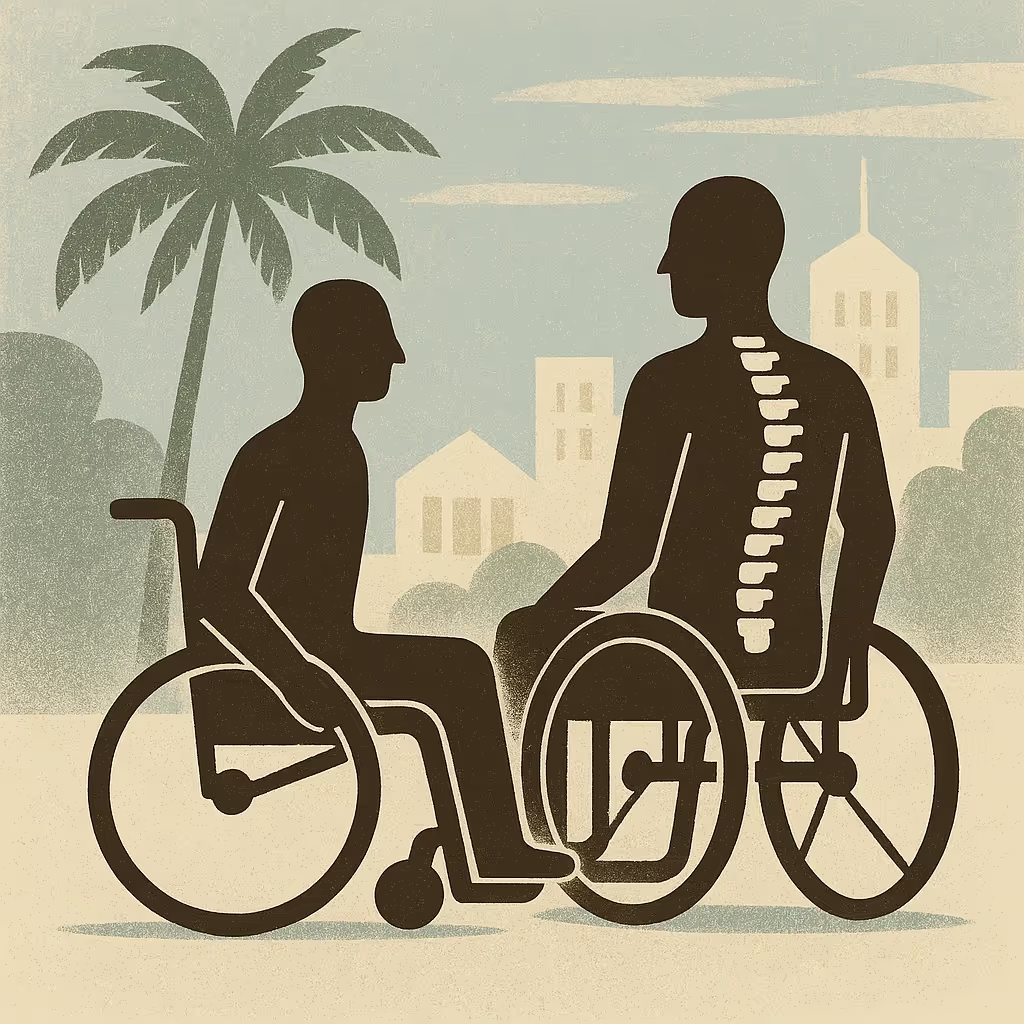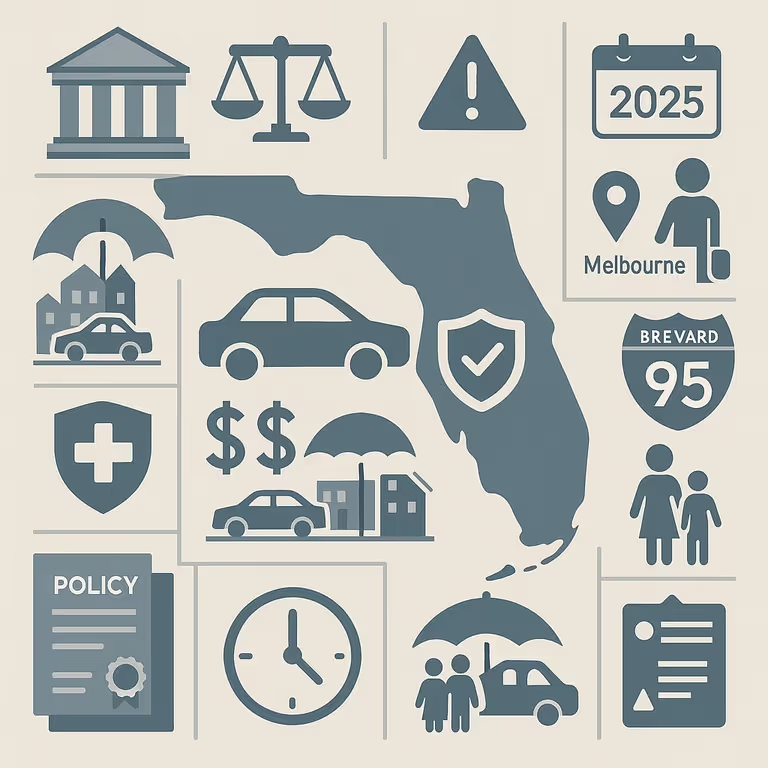The Top Causes of Fatal Boating Accidents in Florida: What Brevard County Boaters Need to Know
Discover the leading causes of Florida's boating fatalities including collisions & alcohol's role. Includes Brevard County risk areas from local experts.

- Despite common assumptions that collisions are the primary cause of boating fatalities, alcohol use is a significant and growing factor in Florida's fatal boating accidents, involved in twenty-three percent of fatalities in 2023 and representing a ten percent increase from the previous year.
- Approximately half of all boating fatalities occur because victims weren't wearing life jackets when they entered the water, making this simple safety measure one of the most critical factors in preventing drowning deaths even for strong swimmers who become incapacitated by injury, cold water, or exhaustion.
- Brevard County presents unique boating challenges with its complex network of waterways, rapidly changing weather patterns, and high-risk areas including Sebastian Inlet, the Banana River-Indian River Confluence, Port Canaveral Entrance, Dragon Point, and the Eau Gallie Causeway Area, where accidents frequently occur.
Worried About Your Injury Case? We'll Review It - Free!


Florida's waterways are a paradise for boaters, but they're also the site of more boating accidents than any other state in the nation. According to the latest data from the Florida Fish and Wildlife Conservation Commission, Florida reported 659 reported recreational boating accidents in 2023, maintaining its unfortunate position as the state with the highest number of boating accidents nationwide. In Brevard County, where our extensive network of waterways includes the Indian River Lagoon, Banana River, and Atlantic Ocean access, understanding what causes these fatal accidents isn't just informative—it's potentially life-saving.
State statistics show falls overboard remain the leading type of fatal accident, while collisions are a major—but secondary—cause. As experienced Melbourne boating accident lawyers, we've seen firsthand that multiple factors contribute to these tragic incidents, and understanding all of them is crucial for prevention.
Florida's Alarming Boating Accident Statistics (2023-2025)
Florida's popularity as a boating destination comes with a sobering reality. The Coast Guard counted 3,844 U.S. accidents and 564 deaths in 2023; about one in six of those crashes happened in Florida—more than any other state. The over 600 recreational boating accidents reported in 2023 resulted in numerous injuries and preventable deaths, affecting families throughout the state and in our local Brevard County communities.
What's particularly concerning is the recent trend in certain types of fatal accidents. While the total number of accidents has remained relatively stable over the past three years, data shows a troubling 10% increase in alcohol-related boating fatalities from 2022 to 2023. This statistic alone highlights the need to look beyond simple collision data when understanding what truly causes fatal boating accidents in Florida waters.
The diversity of factors contributing to these accidents makes prevention a multifaceted challenge. From operator behavior to equipment failures, environmental conditions to regulatory compliance, reducing Florida's boating fatality rate requires addressing numerous risk factors simultaneously.
As we examine these statistics more closely, especially as they relate to our local Brevard County waterways, the importance of comprehensive safety education becomes increasingly clear. Many of these accidents—and nearly all of the fatalities—were preventable with proper precautions and knowledge.
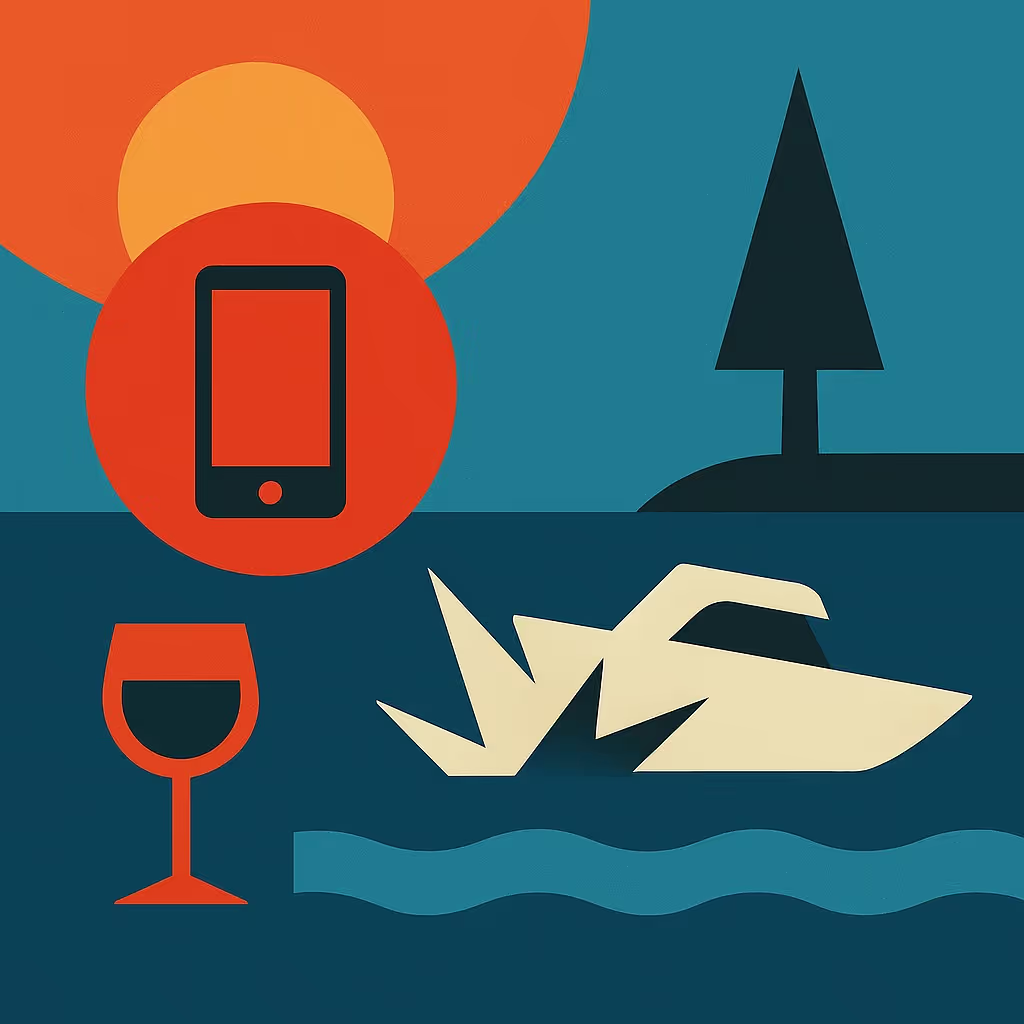
Leading Causes of Fatal Boating Accidents in Florida
Understanding what truly causes fatal boating accidents in Florida requires looking beyond simple explanations like "collisions" and examining the complex factors that contribute to these tragic events. Based on the most recent data from the Florida Fish and Wildlife Conservation Commission and other authoritative sources, several key factors emerge as the leading causes of boating fatalities in our state.
Alcohol and Drug Use: Florida's Growing Problem
Perhaps the most alarming trend in recent boating fatality data is the significant role of alcohol and drugs. Alcohol or drug use contributed to 23% of Florida’s 2023 boating fatalities—up 10% from 2022, according to FWC’s annual statistical report. This makes impaired operation one of the leading contributors to fatal boating accidents in Florida waters.
The effects of alcohol on boating ability are even more pronounced than they are for driving a car. Factors unique to the boating environment—including sun exposure, heat, wind, noise, vibration, and the motion of the water—magnify alcohol's effects on balance, coordination, judgment, and reaction time. What many boaters don't realize is that these environmental stressors can cause fatigue that makes the effects of alcohol consumption even more dangerous on the water than on land.
Florida law treats Boating Under the Influence (BUI) similarly to driving under the influence, with severe penalties for violations. Under Florida Statute § 327.35, operating a vessel with a blood alcohol concentration of 0.08% or higher is illegal, and penalties can include fines, imprisonment, and even vessel forfeiture for repeat offenders.
Our Brevard County drunk driving accident lawyers regularly see striking similarities between alcohol-related accidents on roads and waterways. In both environments, impairment dramatically increases the risk of fatal outcomes.
Operator Inattention and Improper Lookout
Even sober operators can cause fatal accidents when they fail to maintain proper vigilance. Operator inattention and improper lookout consistently rank among the top contributing factors in fatal boating accidents in Florida.
Unlike highways with clearly marked lanes and traffic signals, waterways present an open environment where vessels can approach from multiple directions at varying speeds. This makes constant vigilance essential for safe operation. Common distractions that lead to fatal accidents include:
- Conversation with passengers
- Using electronic devices (phones, music players)
- Focusing on fishing or water sports activities
- Adjusting equipment
- Eating or drinking
- Watching wildlife instead of surrounding vessel traffic
Many boats, particularly those over 16 feet, should have a designated lookout in addition to the operator—someone whose sole responsibility is to watch for potential hazards and alert the operator. The absence of this critical safety measure has contributed to numerous fatal accidents in Florida waters.
Falls Overboard and Life Jacket Non-Compliance
One of the most preventable causes of boating fatalities is drowning following falls overboard. In 2023, 50% of Florida boating deaths were drownings, and 79% of those victims were not wearing a life jacket, underscoring the value of PFDs.
Even strong swimmers can quickly become incapacitated in the water due to:
- Injury during the fall
- Cold water temperature
- Exhaustion
- Disorientation
- Clothing that becomes heavy when wet
- Distance from shore or the vessel
Florida law requires vessels to have one properly fitted, Coast Guard-approved life jacket for each person on board, with children under 6 required to wear them at all times on vessels under 26 feet. However, the law only mandates wearing them in limited circumstances, leaving the critical decision to wear a life jacket up to individual boaters in most situations.
Collisions with Vessels and Fixed Objects
While not the only cause of fatal boating accidents, collisions remain a significant factor in boating fatalities. These can be broadly categorized into two types:
- Vessel-to-vessel collisions: These often occur in congested waterways, at inlets, or in popular gathering areas. Factors like excessive speed, failure to follow navigational rules, and poor visibility contribute to these accidents.
- Collisions with fixed objects: These include striking jetties, channel markers, docks, submerged objects, or the shoreline. These accidents frequently happen at night, in poor weather, or when operators are unfamiliar with local waterways.
What's important to note is that these collisions rarely have a single cause. Most often, they result from a combination of factors such as alcohol use, excessive speed, operator inattention, and environmental conditions.
Operator Inexperience and Lack of Training
A significant and often overlooked cause of fatal boating accidents is operator inexperience. Unlike automobiles, which require extensive training and testing before licensing, boats can often be operated with minimal or no formal training.
Florida law requires that operators born on or after January 1, 1988, complete a boater education course and carry a Boating Safety Education Identification Card while operating a vessel with a motor of 10 horsepower or greater. However, this leaves many older operators without any formal training requirement.
The lack of universal training requirements is particularly problematic with personal watercraft (jet skis), which are involved in a disproportionate number of accidents relative to their numbers. The unique handling characteristics of these vessels, combined with their speed and maneuverability, make proper training especially important.
Even experienced boaters can benefit from refresher courses, as complacency and outdated knowledge contribute to accident risk. The dynamic nature of Florida's waterways, with changing conditions and navigation hazards, makes ongoing education valuable for operators of all experience levels.

Brevard County's Unique Boating Fatality Risks
While boating accidents can happen anywhere in Florida, Brevard County presents its own unique set of risks and challenges. The complex network of waterways in our area creates distinctive safety concerns that residents and visitors alike should understand.
Brevard County is particularly vulnerable to boating accidents due to its extensive waterway system. The area features the Indian River Lagoon (America's most diverse estuary), the Banana River, St. Johns River, and direct Atlantic Ocean access. This creates a complex navigational environment where various types of watercraft—from small fishing boats to luxury yachts, and jet skis to commercial vessels—share the same waters.
Our Melbourne personal injury lawyers have extensive experience with the unique challenges these waterways present, having represented many clients injured in local boating accidents.
High-Risk Areas in Brevard County Waters
Certain areas within Brevard County's waterway system present particularly high risks for fatal boating accidents:
- Sebastian Inlet: This narrow passage connecting the Indian River Lagoon to the Atlantic Ocean features strong currents, sometimes rough conditions, and heavy boat traffic, especially during peak fishing seasons and weekends.
- Banana River-Indian River Confluence: Where these two bodies of water meet near the Pineda Causeway, complex currents and heavy traffic create hazardous conditions, particularly for inexperienced boaters.
- Port Canaveral Entrance: The busy shipping channel sees everything from cruise ships to fishing vessels to recreational boats, creating potential for serious accidents when smaller vessels don't properly yield to larger ones.
- Dragon Point: Located at the southern tip of Merritt Island where the Banana River meets the Indian River, this area has shifting sandbanks and can become congested during popular boating times.
- Eau Gallie Causeway Area: Popular for watersports and recreational boating, this area sees frequent accidents due to the mix of fast-moving vessels and swimmers.
The National Weather Service in Melbourne specifically highlights boating safety as a priority, noting that East Central Florida (including Brevard County) has significant numbers of boating deaths, injuries, and accidents. Our Merritt Island boating accident lawyers regularly handle cases involving accidents in these high-risk areas.
Local Contributing Factors
Beyond the geography of our waterways, several factors specific to Brevard County contribute to the risk of fatal boating accidents:
Rapidly Changing Weather Patterns: Brevard County's coastal location makes it prone to sudden afternoon thunderstorms, particularly during summer months. These storms can develop quickly, creating dangerous conditions with high winds, lightning, heavy rain, and rough water with little warning time for boaters to seek safe harbor.
Tourism and Visitor Traffic: As a popular destination for fishing, eco-tourism, and water recreation, Brevard County sees many visitors operating vessels in unfamiliar waters. These operators may lack knowledge of local navigation hazards, regulations, and customs, increasing accident risk. Our Cocoa Beach tourist accident lawyers often see cases involving visitors unfamiliar with local boating conditions.
Mixed Vessel Types: The diversity of watercraft using Brevard County waterways creates unique safety challenges. In a single area, you might find commercial fishing vessels, luxury yachts, sailboats, jet skis, kayaks, paddleboards, and airboats. Each has different speeds, maneuverability, and visibility profiles, requiring operators to understand how to safely interact with various vessel types.
Manatee Zones and Environmental Protections: Brevard County's waterways include numerous manatee protection zones with speed restrictions. While essential for protecting these endangered mammals, these zones create areas where vessels travel at significantly different speeds, potentially leading to accidents when boaters are unaware of or ignore these restrictions.
Limited Law Enforcement Resources: Despite the best efforts of FWC officers and local marine units, the vast expanse of Brevard County waterways makes consistent enforcement challenging. This can lead to more risk-taking behaviors, particularly in remote areas.
Understanding these local risk factors is essential for safe boating in Brevard County waters. Even experienced boaters from other regions need to familiarize themselves with these unique aspects of our local waterways.

Florida's Boating Laws and Liability in Fatal Accidents
Understanding the legal framework governing boating in Florida is essential not only for compliance but also for establishing liability when fatal accidents occur. Florida has specific laws designed to promote boating safety and determine responsibility in the aftermath of accidents.
Florida's extensive coastline and year-round boating season have prompted the state to develop comprehensive regulations aimed at preventing accidents and establishing clear liability when they do occur. Several key statutes form the core of this legal framework.
Florida Statute § 327.35 establishes that boating under the influence (BUI) is illegal in Florida, similar to driving under the influence. The law sets forth penalties including fines, imprisonment, and vessel forfeiture for repeat offenders. Just as with automobiles, operating a vessel with a blood alcohol concentration of 0.08% or higher is illegal, though operators can be charged even with lower levels if their normal faculties are impaired.
Florida Statute § 327.395 requires boat operators born on or after January 1, 1988, to complete a boater education course and carry a Boating Safety Education Identification Card while operating a vessel with a motor of 10 horsepower or greater. This education requirement aims to ensure operators understand navigation rules, emergency procedures, and safe operation practices.
When a fatal boating accident occurs, determining liability often involves examining whether these and other regulations were followed. Our wrongful death lawyers have extensive experience navigating these complex legal matters to help families secure justice after tragic boating accidents.
Required Actions After a Fatal Boating Accident
Florida law mandates specific actions following a boating accident, and failure to comply with these requirements can have serious legal consequences beyond any liability for the accident itself.
Florida Statute § 327.301 mandates the reporting of boating accidents that result in death, disappearance, injury requiring medical treatment beyond first aid, or property damage of $2,000 or more. This creates a legal obligation for vessel operators involved in serious accidents.
Operators of vessels involved in an accident resulting in death or disappearance must immediately notify the Florida Fish and Wildlife Conservation Commission, sheriff of the county, or police chief of the municipality. This immediate reporting requirement is designed to facilitate prompt emergency response and investigation.
Additionally, a written report must be filed with the FWC within 24 hours in cases of death or disappearance, and within 10 days for other reportable accidents. These reports become critical evidence in subsequent liability determinations and legal proceedings.
Beyond the legal requirements, taking appropriate actions after a boating accident can save lives and preserve crucial evidence. Our Melbourne catastrophic injury attorneys recommend the following steps after any serious boating accident:
- Ensure the safety of all persons involved, providing immediate first aid if needed
- Contact authorities via marine radio (Channel 16 VHF) or cell phone (911)
- Remain at the scene, assisting others if safe to do so
- Exchange information with other vessels/individuals involved
- Collect witness contact information and statements if possible
- Document the scene with photos or video
- Seek medical attention even for seemingly minor injuries
- Contact experienced legal counsel before providing statements to insurance companies
Determining Liability in Fatal Boating Accidents
Establishing liability in fatal boating accidents often involves complex investigations and legal analysis. The Florida Fish and Wildlife Conservation Commission conducts investigations of boating accidents to determine causes and contributing factors, and these investigations can be critical in subsequent liability determinations.
Unlike automobile accidents, which typically occur on well-defined roadways with clear rules, boating accidents happen in an environment with fewer physical boundaries and sometimes less clear navigational protocols. This can make liability determination more challenging, requiring specialized knowledge of maritime rules and regulations.
Multiple parties may potentially bear liability in a fatal boating accident:
- Vessel Operators: The person controlling the boat may be liable for negligent operation, including BUI, excessive speed, failure to maintain proper lookout, or violation of navigation rules.
- Vessel Owners: Even if not operating the boat, owners may be liable under principles of negligent entrustment if they allowed an unqualified or impaired person to operate their vessel.
- Rental Companies: Businesses that rent boats may be liable if they failed to provide proper instruction, rented to obviously inexperienced or impaired individuals, or provided vessels with known mechanical issues.
- Manufacturers: If equipment failure contributed to the accident, the manufacturer of the vessel or component parts may bear liability for defective products.
- Restaurants/Bars: Under Florida's dram shop liability laws, establishments that serve alcohol to a person who is either under 21 or known to be habitually addicted to alcohol may be liable if that person then causes a boating accident.
Violations of Florida's boating regulations may establish negligence per se, meaning that the violation of the safety statute itself can be used to prove negligence without additional evidence of careless conduct.
Our Satellite Beach personal injury lawyers have significant experience establishing liability in complex boating accident cases, utilizing expert witnesses, accident reconstruction specialists, and thorough knowledge of maritime law.
Legal Options for Families After a Fatal Boating Accident
When a fatal boating accident occurs, surviving family members have legal options for seeking compensation for their devastating loss. While no legal remedy can truly compensate for the loss of a loved one, these mechanisms can provide financial security and a measure of justice.
Florida's Wrongful Death Act allows specified surviving family members to recover damages when a person's death is caused by the wrongful act, negligence, default, or breach of contract or warranty of another person or entity. In boating accident cases, these claims typically involve allegations of operator negligence or product liability.
Types of compensation potentially available in wrongful death claims arising from boating accidents include:
- Medical expenses incurred prior to death
- Funeral and burial expenses
- Lost wages and benefits the deceased would have earned
- Lost value of household services the deceased would have provided
- Loss of companionship, guidance, and protection
- Mental pain and suffering of surviving family members
- Lost parental companionship, instruction, and guidance for minor children
It's important to note that Florida has a two-year statute of limitations for wrongful death claims, meaning legal action must be initiated within two years of the date of death in most circumstances.
Recent legislative developments, such as Florida Senate Bill 30 (2024) related to boating safety, continue to enhance safety education requirements. As these requirements become more stringent, they may affect how liability is determined in future fatal boating accident cases, potentially creating stronger presumptions of negligence when operators lack required training or certifications.

Preventing Fatal Boating Accidents: Safety Checklist for Brevard County Boaters
While understanding the legal framework and liability issues surrounding fatal boating accidents is important, preventing these tragedies is always preferable. Based on the causes we've identified, here's a comprehensive safety checklist for boating in Brevard County waters:
Alcohol and Drug Safety:
- Designate a sober operator before leaving the dock
- Remember that environmental factors like sun, heat, and motion amplify alcohol's effects on the water
- Be aware that BUI enforcement increases during holidays and weekend evenings
- Bring plenty of non-alcoholic beverages to stay hydrated
- Consider waiting until you're safely docked for the day before consuming alcohol
Life Jacket and Personal Flotation Device (PFD) Protocols:
- Ensure you have Coast Guard-approved PFDs in the correct size for each passenger
- Check that PFDs are in good condition before each outing
- Consider wearing inflatable PFDs that offer comfort without sacrificing safety
- Make children under 13 wear PFDs at all times while the vessel is underway
- Keep throwable flotation devices readily accessible for emergency use
Operator Attention and Lookout Practices:
- Assign a dedicated lookout in addition to the operator on larger vessels
- Minimize distractions at the helm (secure loose items, silence phones)
- Take regular breaks to maintain focus during long trips
- Reduce speed in congested areas, near shorelines, and in limited visibility
- Use the "scan, identify, predict, decide, execute" method for hazard detection
Navigation and Local Knowledge:
- Study charts of Brevard County waterways before heading out
- Mark known hazards and shallow areas on your GPS or charts
- Learn the locations of manatee zones and speed restrictions
- Check tide tables, as many Brevard County areas become hazardous at low tide
- Familiarize yourself with local navigation markers and channel indicators
Equipment and Vessel Maintenance:
- Conduct a pre-departure checklist before each outing
- Ensure navigation lights are working properly for nighttime operation
- Maintain proper fuel levels with a one-third reserve for safety
- Keep fire extinguishers accessible and regularly serviced
- Test bilge pumps and have manual backup bailing equipment
Weather and Environmental Awareness:
- Check marine forecasts specifically for Brevard County before departing
- Be alert for afternoon thunderstorm development, especially in summer
- Have multiple methods to receive weather alerts while on the water
- Know safe harbors along your route where you can seek shelter
- Understand how to recognize signs of approaching severe weather
Communications and Emergency Preparedness:
- Carry a properly charged VHF marine radio (more reliable than cell phones)
- Save the FWC Wildlife Alert Hotline in your phone: 888-404-FWCC (3922)
- File a float plan with someone ashore before departing
- Carry visual distress signals appropriate for day and night use
- Consider an Emergency Position Indicating Radio Beacon (EPIRB) for offshore travel
Our Melbourne boat accident attorneys recommend these safety measures based on real accident cases we've handled. Following these guidelines can significantly reduce your risk of being involved in a fatal boating accident on Brevard County waterways.
Frequently Asked Questions (FAQs)
What is the number one cause of boating fatalities in Florida?
While collisions are significant, recent data shows multiple leading factors in Florida's fatal boating accidents. Alcohol use, operator inattention, and falls overboard leading to drowning (often due to lack of life jackets) are major contributors. Alcohol use in particular was involved in 23% of boating fatalities in 2023, representing a 10% increase from 2022. This makes impaired operation one of the most significant and growing causes of fatal boating accidents in Florida.
How do Florida's boating fatality statistics compare to other states?
Florida consistently leads the nation in boating accidents and fatalities, partly due to its extensive coastline and year-round boating season. In 2023, Florida reported 659 recreational boating accidents, maintaining its unfortunate position as the state with the highest number of boating accidents nationwide. This high number reflects both the popularity of boating in Florida and the need for increased safety awareness.
What are the penalties for boating under the influence in Florida?
A first BUI conviction carries a $500–$1,000 fine and up to six months’ jail time under § 327.35, Fla. Stat. Second offenses bring increased fines and potential jail time, while third and subsequent offenses can be charged as felonies with minimum mandatory jail sentences. Conviction can also result in impoundment or forfeiture of the vessel and suspension of boating privileges.
Does homeowner's insurance cover boating accidents?
Homeowner's insurance policies vary significantly in their coverage of boating-related incidents. Some policies provide limited coverage for small boats with low horsepower engines, but this coverage is often insufficient for serious accidents. Larger vessels or those with more powerful engines typically require separate boat insurance policies. If you own a boat, it's essential to speak with your insurance agent about proper coverage rather than assuming your homeowner's policy is sufficient.
What should I do immediately if I witness a fatal boating accident in Brevard County?
If you witness a fatal boating accident:
- Ensure your own safety first
- Call for help immediately using VHF Channel 16 (marine radio) or 911
- If safe to do so, assist victims while minimizing movement of injured persons
- Mark the location using GPS or landmarks
- Note the time and conditions
- Get contact information from other witnesses
- Document the scene if possible without interfering with rescue efforts
- Remain on scene until authorities arrive
- Provide a complete statement to investigating officers
Who investigates fatal boating accidents in Florida?
The Florida Fish and Wildlife Conservation Commission (FWC) is the primary investigating agency for boating accidents in Florida waters. They work in conjunction with local law enforcement agencies and, in some cases, the U.S. Coast Guard. FWC officers are specifically trained in marine accident investigation techniques and have jurisdiction throughout the state. Their investigations include collecting physical evidence, interviewing witnesses, determining contributing factors, and producing official reports that may be used in subsequent legal proceedings.
Are boat rental companies liable if their customers cause fatal accidents?
Boat rental companies can potentially be held liable in certain circumstances, including:
- Renting to obviously intoxicated individuals
- Failing to provide basic operational instructions
- Renting vessels with known mechanical problems
- Not verifying that renters have required boating safety education
- Failing to provide required safety equipment
However, liability varies based on the specific circumstances of each case, the rental agreement terms, and the renter's conduct. Most rental companies have customers sign liability waivers, though these may not protect against gross negligence or willful misconduct by the company.
What boating safety courses are available in Brevard County?
Several boating safety courses are available in Brevard County:
- FWC-approved online courses through providers like BoatUS and BoaterExam
- U.S. Coast Guard Auxiliary courses offered at locations in Cocoa Beach, Melbourne, and Titusville
- U.S. Power Squadrons courses through the Titusville and Banana River squadrons
- Hands-on training through local boating schools and yacht clubs
- Free vessel safety checks offered by the Coast Guard Auxiliary at various marinas
Many of these courses fulfill Florida's legal requirements for the Boating Safety Education Identification Card and provide valuable knowledge that can prevent accidents.
Conclusion
Florida's waterways, particularly those in Brevard County, offer incredible recreational opportunities—but they also present serious risks when safety precautions aren't followed. Understanding that fatal boating accidents stem from multiple causes—not just collisions—is essential for prevention.
Alcohol use, operator inattention, lack of proper safety equipment (especially life jackets), and inexperience all contribute significantly to Florida's troubling boating fatality statistics. Each of these factors is addressable through proper education, preparation, and responsible behavior on the water.
The unique characteristics of Brevard County's waterways—from the narrow Sebastian Inlet to the vast expanse of the Indian River Lagoon—require specific local knowledge and heightened awareness. Changing weather patterns, varying vessel types, and high-traffic areas all create additional challenges for safe navigation.
If you or your family has experienced the tragedy of a fatal boating accident, understanding your legal rights is important. Florida law provides remedies for families affected by wrongful deaths on the water, but navigating the complex liability issues requires experienced legal guidance.
For compassionate, knowledgeable assistance after a boating accident, contact Douglas R. Beam, P.A. at (321) 723-6591. Our Melbourne boating accident attorneys understand the complex factors involved in these tragic cases and can help your family pursue justice and fair compensation.
Sources
- Florida reports most boating accidents
- FWC Boating Safety Education
- Florida BUI Statute
- FWC Boating Regulations
- FWC Accident Statistics
- Safe Boating Campaign
- Melbourne Weather Boat Safety
- FL Senate Bill 30 (2024)
Not Sure What To Do Next? We Can Help – Fast & Free.
Worried About Your Injury Case?
We'll Review It - Free
Don’t miss an article
Florida law, local insights, and the occasional dog pic.
Delivered straight to your inbox.
More articles
Browse all articlesFree Case Review
Get a complimentary review of your case

.webp)



.png)
